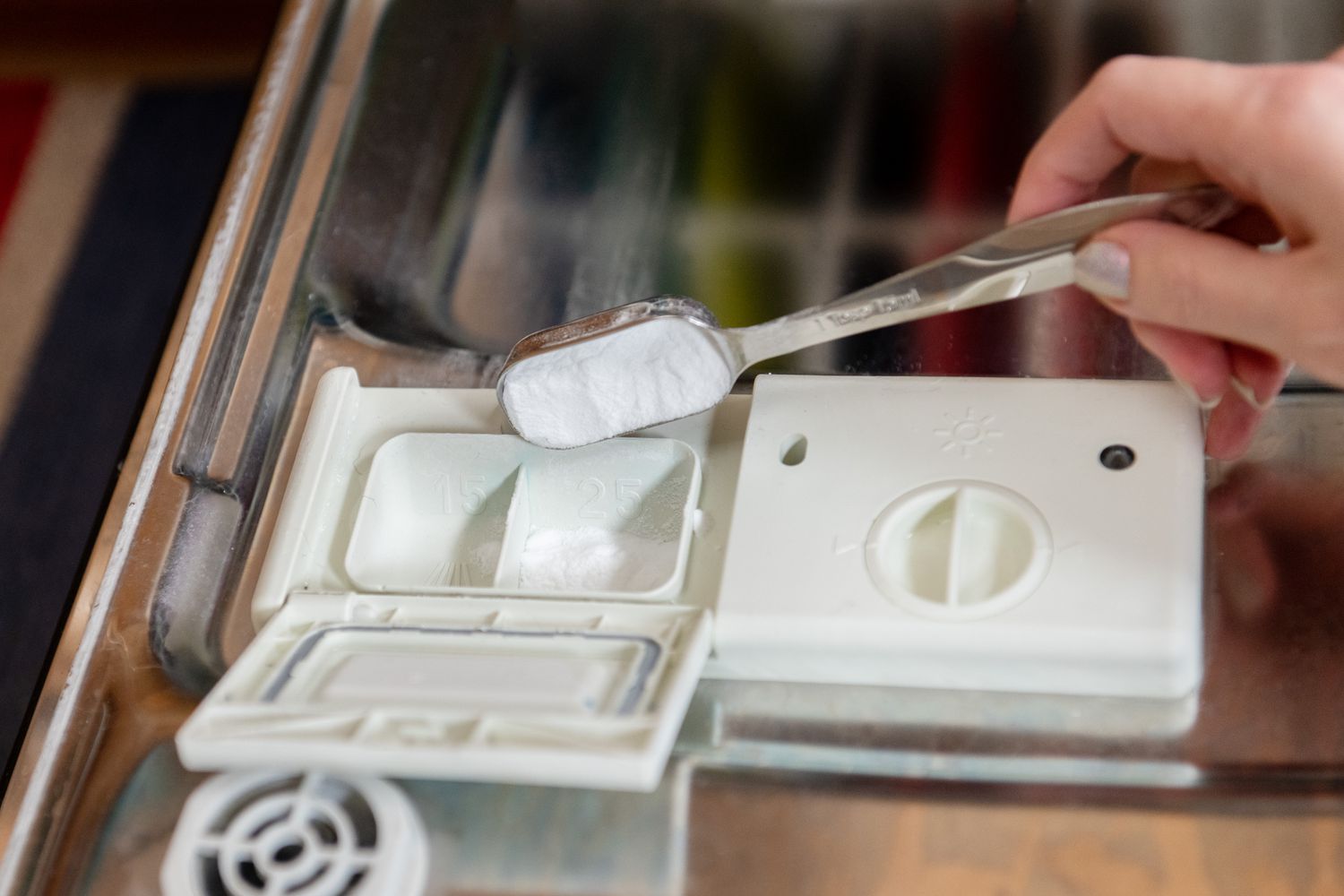Introduction
Dishwashers have become an indispensable appliance in modern kitchens, saving time and effort when it comes to cleaning dishes. However, a common misconception among some users is that dish soap can be used interchangeably with dishwasher detergent. This guide delves into the world of dishwashers and dishwashing agents, exploring why dish soap is not suitable for dishwashers and providing insights into choosing and using the right dishwasher detergent.
Understanding Dish Soap and Dishwasher Detergent
Dish soap and dishwasher detergent may seem similar at first glance, but they are designed for different purposes and have distinct properties. Dish soap is specifically formulated for handwashing dishes. Its primary function is to create abundant suds that lift grease and grime from dishes. In contrast, dishwasher detergent is designed for use in dishwashers, where suds are not only unnecessary but can be detrimental to the appliance’s performance.
Dishwasher detergent is formulated to effectively break down food particles and grease without excessive suds. It contains enzymes that target specific types of food stains, while other ingredients work to soften hard water and prevent spots. The lack of excessive suds is crucial for dishwashers, as it allows the water to circulate freely and reach all areas of the dishes.
Why Dish Soap is Not Suitable for Dishwashers
Using dish soap in a dishwasher can lead to several undesirable consequences. The sudsy nature of dish soap can clog the dishwasher’s pumps and filters, hindering the cleaning process and potentially damaging the appliance. Dish soap’s harsh chemicals and foaming properties can also cause damage to seals, gaskets, and other components over time. Moreover, dish soap may not effectively break down food particles and grease, leaving dishes with a greasy residue or stubborn stains.
Choosing the Right Dishwasher Detergent
With a variety of dishwasher detergents available, selecting the right one can be overwhelming. Factors to consider include the water hardness in your area, the type of dishes you typically wash, and your personal preferences. For hard water, look for detergents that contain water softeners to prevent spots and scale buildup. If you frequently wash delicate dishes, consider a gentler detergent formula. And if you prefer a fragrance-free option, there are plenty of unscented detergents available.
Some of the most popular and well-regarded dishwasher detergent brands include Cascade, Finish, and Dawn Powerwash. These brands offer a range of detergent types and formulas to suit different needs and preferences.
Using Dishwasher Detergent Effectively
To ensure optimal cleaning performance, it’s important to use dishwasher detergent correctly. Follow the manufacturer’s instructions on the detergent packaging to avoid using too much or too little. Place the detergent in the designated dispenser, usually located in the door or inside the dishwasher tub. For added cleaning power, consider using a rinse aid, which helps dishes dry more evenly and prevents water spots.
To maintain the dishwasher’s performance and prevent problems, clean the filter regularly to remove food debris and other particles. Avoid overloading the dishwasher, as this can hinder the cleaning process and lead to uneven results.
Alternative Dishwasher Cleaning Solutions
While dishwasher detergent is the primary cleaning agent for dishwashers, there are a few natural alternatives that can be used for specific purposes. Baking soda is a versatile cleaning agent that can help remove stubborn stains and odors. White vinegar is a natural disinfectant and descaler that can help remove hard water spots and mineral buildup. Lemon juice is a natural degreaser and freshener that can add a pleasant citrus scent to the dishwasher.
Maintaining Your Dishwasher for Optimal Performance
Regular cleaning and maintenance are essential to keep your dishwasher operating at its best. Wipe down the interior and exterior of the dishwasher with a damp cloth to remove food debris and spills. Run a deep cleaning cycle with a dishwasher cleaner or vinegar periodically to remove grease, grime, and odors. If you live in an area with hard water, consider using a descaling agent or vinegar to remove mineral buildup and improve the dishwasher’s performance.
Troubleshooting Dishwasher Problems
If you encounter problems with your dishwasher, such as poor cleaning, excessive suds, unpleasant odors, or noisy operation, it’s important to identify the cause before attempting a solution. Potential causes include improper detergent usage, clogged filters, faulty components, or hard water issues.
Check the detergent dosage and ensure you’re using the correct type for your water hardness. Clean the dishwasher filter regularly to prevent clogs. If the problem persists, consult the user manual for troubleshooting steps or seek professional repair if necessary.
Safety Precautions When Using Dishwasher Detergent
Dishwasher detergent is a concentrated cleaning agent and should be handled with care to prevent accidents or harm. Keep dishwasher detergent out of reach of children and pets. Avoid direct contact with skin and eyes. Wear gloves when handling dishwasher detergent, especially if you have sensitive skin. Store dishwasher detergent in a cool, dry place away from direct sunlight and extreme temperatures.
The Science Behind Dish Soap vs. Dishwasher Detergent
The difference between dish soap and dishwasher detergent goes beyond simply creating suds. Let’s delve deeper into the science behind these cleaning agents.
A. Dish Soap:
- Surfactants: The primary ingredient in dish soap. Surfactants lower the surface tension of water, allowing it to spread more easily and lift dirt and grease from dishes.
- Fragrances: Added for a pleasant scent, but not essential for cleaning.
- Foaming Agents: Enhance the sudsing action, which is visually appealing for handwashing but unnecessary in dishwashers.
B. Dishwasher Detergent:
- Enzymes: Break down protein and starch stains, common culprits of food residue on dishes.
- Builders: Soften hard water, preventing mineral deposits and promoting better cleaning.
- Rinsing Agents: Aid in water sheet formation, allowing dishes to dry more effectively and preventing water spots.
- Bleaching Agents: Whiten and brighten dishes, particularly useful for removing coffee and tea stains.
DIY Dishwasher Cleaning Solutions (with Caution)
While commercial dishwasher detergents are readily available, there are a few DIY cleaning solutions that can be used occasionally with caution. However, it’s important to note that these methods may not be as effective as commercial detergents and could potentially damage your dishwasher if not used properly.
- Baking Soda and Vinegar: This combination can be used to remove light stains and odors. Sprinkle baking soda on the bottom of the dishwasher and run a hot water cycle with a cup of white vinegar in a dishwasher-safe container placed on the top rack.
Important Note: Avoid using baking soda and vinegar together in the same compartment, as the resulting chemical reaction can cause excessive foaming.
- Lemon Juice: Can be used as a natural deodorizer and degreaser. Place half a lemon on the top rack and run a hot water cycle.
Caution: Lemon juice may be too acidic for some dishwashers and potentially damage the seals over time.
Conclusion (Final Thoughts)
By understanding the distinct properties of dish soap and dishwasher detergent, you can ensure your dishwasher functions optimally and delivers sparkling clean dishes. Choosing the right detergent for your needs, practicing proper usage, and maintaining your dishwasher regularly will contribute to its longevity and performance. Remember, a little knowledge about dishwashing technology and cleaning agents can go a long way in keeping your kitchen clean and efficient.




